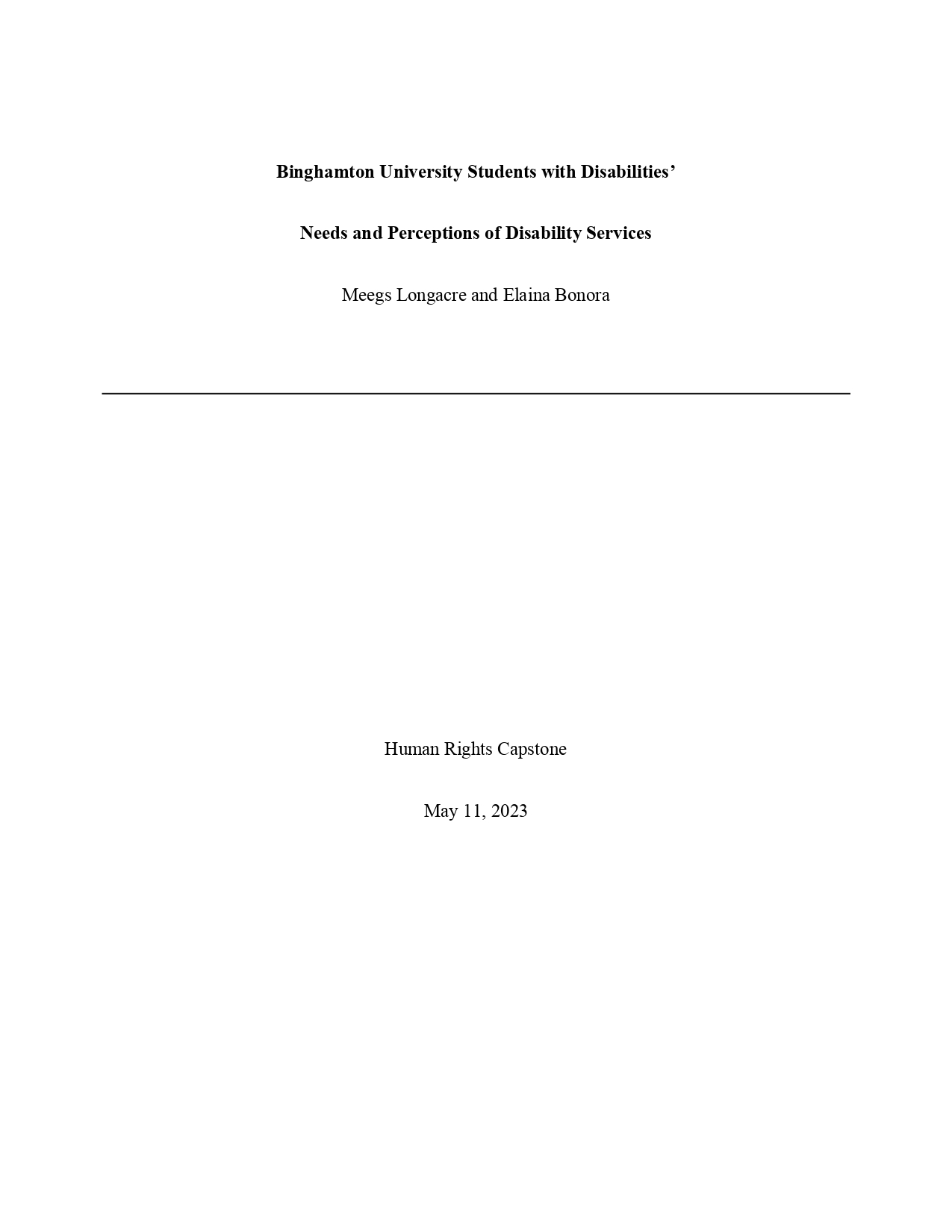Human Rights Reports
Reports on the Rights of Persons with Disabilities in the LDCs
Part I

This report provides an in-depth analysis of the Convention on the Rights of Persons with Disabilities (CRPD) and its implementation in the least developed countries (LDCs). The report is divided into four main sections that cover the legal and conceptual foundations of the CRPD, the structural barriers LDCs face in carrying out the convention, the role of civil society organizations in promoting disability rights, and initiatives specifically focused on youth with disabilities.
The first section explores the differing models of disability (medical vs. social) that inform the CRPD's definition, as well as the central concept of "reasonable accommodation" and how it challenges traditional notions of equality. Section two analyzes barriers like lack of human rights culture, low education levels, poor healthcare, poverty, and conflict that hinder CRPD implementation in LDCs. Section three highlights common focuses of disability civil society groups, such as those serving the blind, deaf, women, and children. The final section emphasizes the importance of youth involvement by highlighting youth-led disability rights initiatives in select LDCs.
Part II

This report provides an overview of civil society organizations that work to advance the rights and services for persons with disabilities in the United Nations' Least Developed Countries (LDCs). For each LDC, the report identifies relevant national and international non-governmental organizations (NGOs), disabled persons organizations (DPOs), associations, and other civil society groups. It includes their mission statements, contact information, descriptions of their activities and areas of focus related to promoting the rights of persons with disabilities.
The civil society organizations covered span a wide range of activities such as advocacy, awareness raising, skills training, education support, legal aid, healthcare services, community rehabilitation, assistive devices provision, capacity building of disabled persons organizations, inclusive development programs, and initiatives tailored to specific disability types like visual or hearing impairment. Many operate at the national level while others are local community-based groups. Several notable international NGOs like Humanity & Inclusion, Handicap International, and USAID also have disability-focused programs and partnerships in multiple LDCs.
Binghamton University Students with Disabilities : Needs and Perceptions of Disability Services

The report explores the experiences and needs of students with disabilities at Binghamton University. The researchers interviewed students, student groups focused on disability, the director of the Services for Students with Disabilities (SSD) office, a faculty member researching disability, and attended a campus disability research symposium. Four main themes emerged: 1) Students are aware of laws protecting them but have mixed experiences with SSD, often avoiding it due to stigma, concerns about accommodations, and documentation issues. 2) Students recognize there is privilege in having an official diagnosis, which can be impacted by factors like income, race, and culture. As a result, some want more validity for self-diagnosis. 3) Students lack social support and specifically seek community with other disabled students. 4) The principle of "nothing about us without us" is important - disabled individuals should be involved in decisions, policies, and research about the disability community.
The report provides student perspectives illustrating each of these themes through interview summaries. It also discusses the SSD office's processes, challenges they face in supporting a large number of students, and the varying reasons students may not utilize accommodations. Based on the findings, recommendations are provided such as increasing SSD resources, offering more flexibility on assignments, improving mental health services, training faculty on universal design practices, creating a dedicated space for disabled students, and ensuring disabled voices are included in disability-related research and decisions on campus.